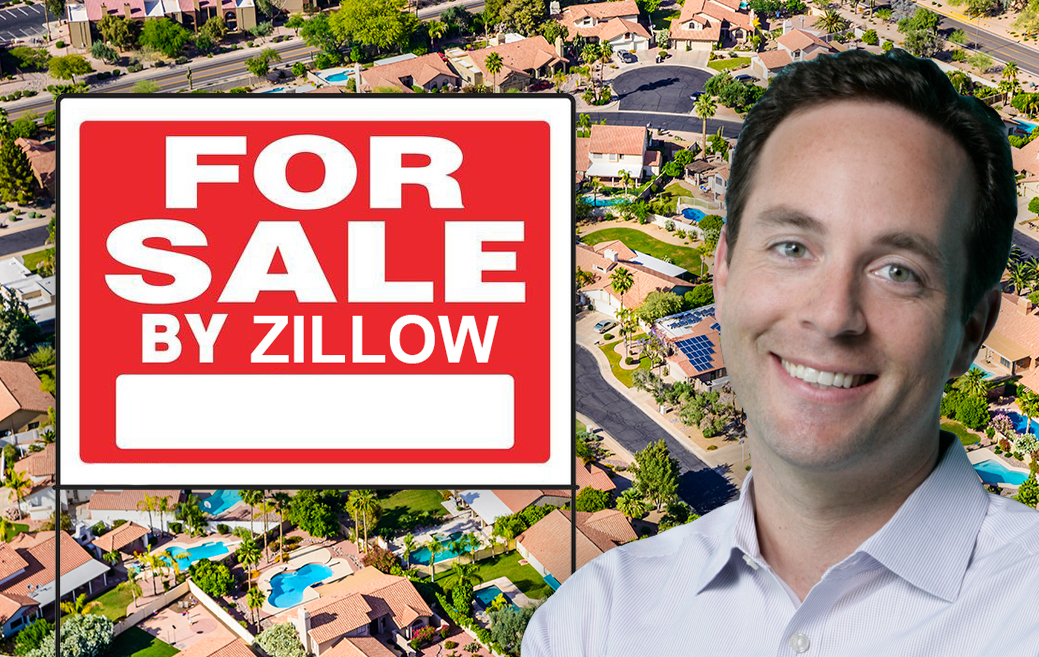With Zillow’s expansion of its “Instant Offers” program and its declaration that it would become a direct player in the market by buying and selling homes, brokers across the country took stock of what that might mean for them.
The real estate listings giant, which has a market capitalization of around $10 billion, said it will begin buying up homes in Phoenix, with the aim of reselling the properties within 90 days. Agents who participate in Premier Agent, Zillow’s agent advertising program, could be picked to broker the sales on behalf of Zillow and other buyers. The new venture doesn’t completely cut out real estate agents, but certainly downsizes their roles: A lot of the process takes place online, and a quick flip may not require a face-to-face interaction.
“While most [sellers] prefer to sell their home on the open market with an agent,” Zillow’s chief marketing officer Jeremy Wacksman said in the announcement, “some value convenience and time over price.”
Manhattan is somewhat insulated from the Zillow program: Much of the city’s market is comprised of high-end condos and co-ops, which require more offline activity such as navigating co-op boards and multiple rounds of negotiation. But one New York brokerage chief still sees the program as a sign that Zillow will eventually want in on the action. The company has already been aggressively monetizing its New York website, StreetEasy, through initiatives that have driven revenues but also often put it at odds with the brokerage community.
“It’s such a lucrative game that everyone is trying to get a piece of it,” the executive said.
In interviews with The Real Deal shortly after the announcement, brokers from small-to-medium-sized firms across the country seemed to welcome the move, seeing it as a way to get more exposure to sales listings.
“It’s leveling the playing field for me,” said Kobi Lahav, an agent with New York-based Mdrn. Residential, a small brokerage firm in New York. “It gives me more access to exclusive listings on the sell side, not just on the buyers side.” In general, the market for sell-side listings in the city is cornered by the bigger brokerages, particularly on the high-end.
Ariel Lopez, whose Miami-based brokerage Island Living Realty flipped more than 200 houses in Miami-Dade County last year, said he would be interested in working with the program, but feels it would only work in some instances.
“For traditional real estate [sales], it might work,” he said. “Flipping houses is not something that you just do online 100 percent. You need to have people on the ground.”
Mike Pappas, CEO of the Miami-based Keyes Company, said the online home-flipping model will appeal to sellers who trade convenience and time for price.
“I think like anything, the larger the capital and the more money flowing into the business, the tighter the margins will become,” he said. “Will there be more challenges to the flippers competitively? Yes. But you still need to make a profit in a short period of time.”
Others were far more skeptical. “I think it’s one of the worst tools that are out there because it gives a different perception of the value of the home,” said Josh Flagg, a broker at Rodeo Realty Beverly Hills and a star of “Million Dollar Listing Los Angeles.” “The best way to find out the real value of a home is to ask the top agent in that area.”
“In L.A., where there is big money and educated buyers and sellers, someone that wants to sell a property ranging anywhere from $2 million to $200 million isn’t going to go to Zillow,” said Hilton & Hyland’s Bjorn Farrugia. “Zillow is a discount broker.”
“I knew this would happen,” said Joanne Nemerovski of Compass’ Chicago office. “People go to sites like Zillow or Redfin for information on real estate but they don’t go to brokers, who are the real experts. It would be silly for Zillow not to use all the information they have access to in a lucrative way.”
Zillow piloted the Instant Offers program last May in Las Vegas and Orlando. It faced serious resistance from agents, with as many as 32,000 from around the country signing a petition opposing the program, according to the Orlando Sentinel. The paper reported that the anti-Instant Offers program even asked the National Association of Realtors to intervene. Zillow did, however, make some headway with the brokerage community, partnering with firms such as West USA (Phoenix) and Berkshire Hathaway HomeServices Arizona & Nevada Properties, and Coldwell Banker Premier Realty (Las Vegas).
The company says it will invest between $75 million and $250 million to buy up to 1,000 homes by the end of the year, according to the Wall Street Journal. Zillow hasn’t released figures on how many homesellers in Orlando or Las Vegas used Instant Offers, but Errol Samuelson, the company’s chief industry development officer, told InMan that a third of the sellers who requested an “instant offer” proceed and sold their home, and 90 percent of them chose to list with an agent in lieu of taking cash offers from an institutional investor. Sellers, Samuelson said, would be charged a fee to participate in the expanded version of the program.
Other real estate tech companies, including Redfin and Open Door Labs, have already jumped into the sales side of the home-flipping business.
“Consumers now expect an on-demand experience,” Spencer Rascoff, Zillow’s chief executive, said on a call with analysts Thursday. “The days of pushing a button and that generating an email to a real estate agent is no longer as magical as it was in 2005.”
E.B. Solomont, Katherine Kallergis, Natalie Hoberman and Scott Klocksin contributed reporting.
